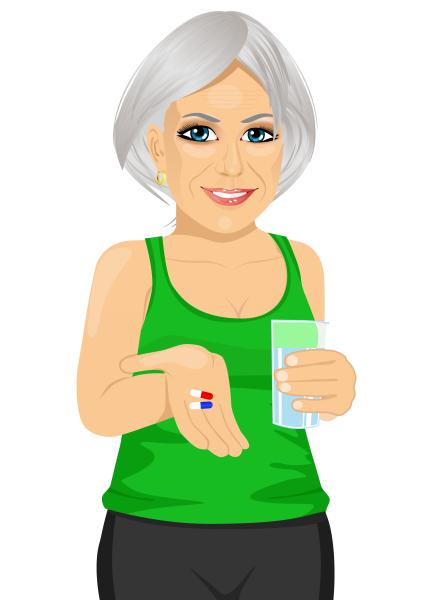Vitamin D status and supplements seem to have become a societal preoccupation. Encouraging the latter’s use as a cure-all, the “magic bullet” commercialization of vitamins and supplements has created a multi-billion dollar industry. One that is often unchecked due to absent regulation and universally promotes these items whose mechanisms of action are poorly understood and of questionable value—let’s not forget that they also have the capacity to do harm. (1,2)
Hence, why it is important to write about a new study published in the Journal of the American Medical Association (JAMA) that set out to determine if vitamin D3 and Calcium supplementation in older women would reduce their cancer risk. The results: No significant reduction of the incidence of all-type cancer in older women supplemented compared to those receiving placebo.
First, a little about Vitamin D and calcium.
Vitamin D produced in the skin is converted to a hormone form and activated by the liver and kidney. Yes, maintaining appropriate levels of the fat-soluble Vitamin D consistently is essential to well-being and multiple bodily functions. It promotes proper absorption of calcium in the gut and regulates calcium and phosphate concentrations so that bones develop with strength, grow and appropriately remodel. When Vitamin D values are optimally maintained, conditions that weaken and thin bones are ideally avoided (e.g. rickets in kids, osteomalacia in adults, with calcium also prevents osteoporosis). Additionally, it plays a role in reducing inflammation, neuromuscular and immune functions and many cellular reactions.
However, when an individual is otherwise healthy it can be naturally and effectively generated via sun exposure and dietary intake of certain foods—though most of this is acquired through fortified foods in the United States. Fundamentally, there is no superior means of absorbing a nutrient than the old-fashioned way of eating it, in particular, for a person with an intact and normally functioning gastrointestinal tract. There are certain medical conditions— along with the impact of aging— that challenge the body’s ability to absorb specific nutrients effectively, so supplementing might be warranted in those instances.
The researchers performed a double-blind, placebo-controlled, population-based randomized clinical trial whose participants spanned 31 rural counties in Nebraska and were followed for four years. Healthy, postmenopausal women of mean age 65.2 years (required to be 55 or older) with 99.5% self-identifying as non-Hispanic white race and a mean baseline serum 25-hydroxyvitamin D level of 32.8 ng/ml enrolled to be studied. The total study examined 2303 women with the treatment group receiving 2000 IU/d of vitamin D3 and 1500 mg/d of calcium while the other 1147 were administered identical placebos. Both groups were relatively similar along multiple parameters including body size, ethnicity, age, smoking, estrogen use and so forth.
Given that there is some evidence to support vitamin D possibly playing a role in cancer prevention, and recognizing how profound a public health issue cancer is, the authors wanted to explore if there were any effects of supplementation. After all, 40% of the population in the United States will experience cancer while the estimated cost of cancer care is anticipated to rise from $125 billion in 2010 to $165 billion in 2020. (3)
No major adverse effects occurred with this study. Sixteen in the treatment group and 10 in the placebo group developed kidney stones, and 6 in the former and 2 in the latter experienced elevated levels of calcium in the blood.
One hundred nine participants were newly diagnosed with cancer — 45 (3.89%) in the treatment group and 64 (5.58%) in the placebo group.
Of note, due to the ethical ramifications of not allowing women of this age to consume Vitamin D and calcium outside of this study for their potential bone or skeletal health, those in the placebo group were permitted to take their own Vitamin D and calcium as long as it fell under national guidelines. This is a clear limitation of the study that the authors concede. But, they did observe this group took higher levels of Vitamin D supplementation than did the treatment group.
Additional limitations to the work include the restricted scope of age, ethnic and gender diversity, so generalizing the results would be somewhat premature. Clearly, more needs to be studied to clarify what potential Vitamin D has in cancer prevention.
NOTE(S):
- To learn more about the importance of Vitamin D and the hazards of excessive Vitamin D Supplementation, read Shining the Light on Vitamin D Supplementing.
- Further insight can also be acquired reviewing, Dr. Paul Offit’s article (an excerpt from his book) The Vitamin Myth: Why We Think We Need Supplements.
SOURCE(S):
(3) Lappe, Joan PhD, RN et al. Effect of Vitamin D and Calcium Supplementation on Cancer Incidence in Older Women: A Randomized Clinical Trial. JAMA. 2017;317(12):1234-1243.




